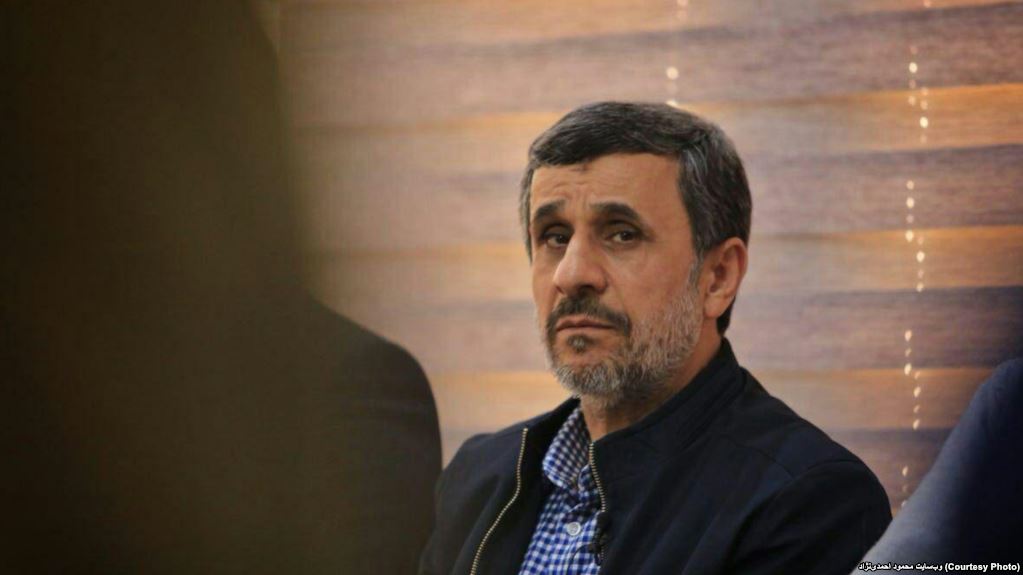March 15, 2019

Former President Mahmud Ahmadi-nejad has out done his reputation for outspokenness by asserting that Iranians enjoyed more freedom under the Shah than they do under the Islamic Republic.
Ahmadi-nejad spoke out in an interview with the Fars news agency, linked to the Pasdaran, marking the first occasion that an establishment news outlet has given him a platform since his term ended in 2013 amid soured relations with Supreme Leader Ali Khamenehi.
Ahmadi-nejad presented a two-point historical analysis of the Pahlavi Dynasty and the Islamic Republic. He said the Pahlavis were more brutal and had tortured opponents more than the clerical regime, but that the Pahlavis allowed dissidents more leeway and more freedom in society.
And he didn’t just say the current regime is a wee bit more repressive—he said it is much more repressive.
“Although the ruling establishment reacts less harshly against its dissidents, it has expanded the sphere of its confrontation with the people. I mean, comparing with the past, the situation with freedom is much worse today,” Ahmadi-nejad said, using the clear and bold expressions that so endeared him to many followers and that so infuriated much of the establishment.
“[The Islamic Republic’s] prisons are currently crowded with the critics of the heads of the three branches of power—the Judiciary, the Majlis, and the executive administration,” Ahmadi-nejad said, directly contradicting official regime rhetoric, which denies that anyone is jailed for expressing criticism.
It is also worth noting that during his own presidency Ahmadi-nejad boasted that Iranians enjoyed “absolute freedom.”
After his second term ended in 2013, Ahmadi-nejad was essentially cast aside by Khamenehi—just as his predecessor, Mohammad Khatami, had been. Khatami has actually been treated much worse than Ahmadi-nejad as the Iranian media are forbidden to report the words or activities of Khatami and may not even run his photo. It will be interesting to see if Ahmadi-nejad’s latest outburst brings him similar into-the-dustbin treatment.
The former president’s final break with the authorities came in 2017 when he sought to run again for president. Khamenehi publicly urged him not to do so. But Ahmadi-nejad cold-shouldered the leader and filed as a candidate anyway. The Council of Guardians then barred Ahmadi-nejad from the ballot.
But the most serious development from Ahmadi-nejad’s perspective appears to have come when the Judiciary threw two of his closest buddies into prison.
His Vice President for Executive Affairs, Hamid Baqai, was sentenced to 15 years in prison on corruption charges and his Chief of Staff, Esfandiar Rahim Mashshai, was given five years on similar charges last year. The pair got little public support as most Iranians appear to believe the charges were accurate.
But Ahmadi-nejad swiftly became a vociferous critic of the regime, demanding the pair be freed and then that the heads of the three branches of government all resign and permit free elections.
Ahmadi-nejad, however, did not complain while he was president and the Judiciary was tossing into jail those who were criticizing Ahmadi-nejad.
In his interview, Ahmadi-nejad strained belief by saying, “We were truly unaware of the unjustifiable actions by the Judiciary at that time. We really did not know, but later we were informed. As you are not aware of many facts at this time, we were also unaware of many cases and kept in the dark at the time. Nevertheless, God willing, you will soon be informed of the facts as well.”
In a series of open letters to the Supreme Leader that the former president has penned in recent months, Ahmadi-nejad called the heads of the three branches—President Rohani, Majlis Speaker Ali Larijani and Judiciary Chairman Sadeq Larijani—a “gang,” and accused them of abusing their power to imprison his allies.
In one letter, Ahmadi-nejad accuses the Larijani brothers of joining forces with Rohani to attack the former president’s supporters. Ahmadi-nejad also said the trio is responsible for the unrest of the past year that has produced protests against the ruling establishment.
In previous letters to the Supreme Leader, Ahmadi-nejad warned that “public dissatisfaction with the regime’s performance is serious and extremely high.” He demanded structural reforms in institutions such as the 12-man Council of Guardians and called for the establishment of a constitutional court and a ban on the armed forces intervening in politics—something they were widely accused of doing on Ahmadi-nejad’s behalf when he was president. He did not complain then.
Khamenehi has so far not responded directly to any of Ahmadi-nejad’s comments or letters, though Radio Farda says Khamenehi has implicitly admonished Ahmadi-nejad in speeches at least twice.